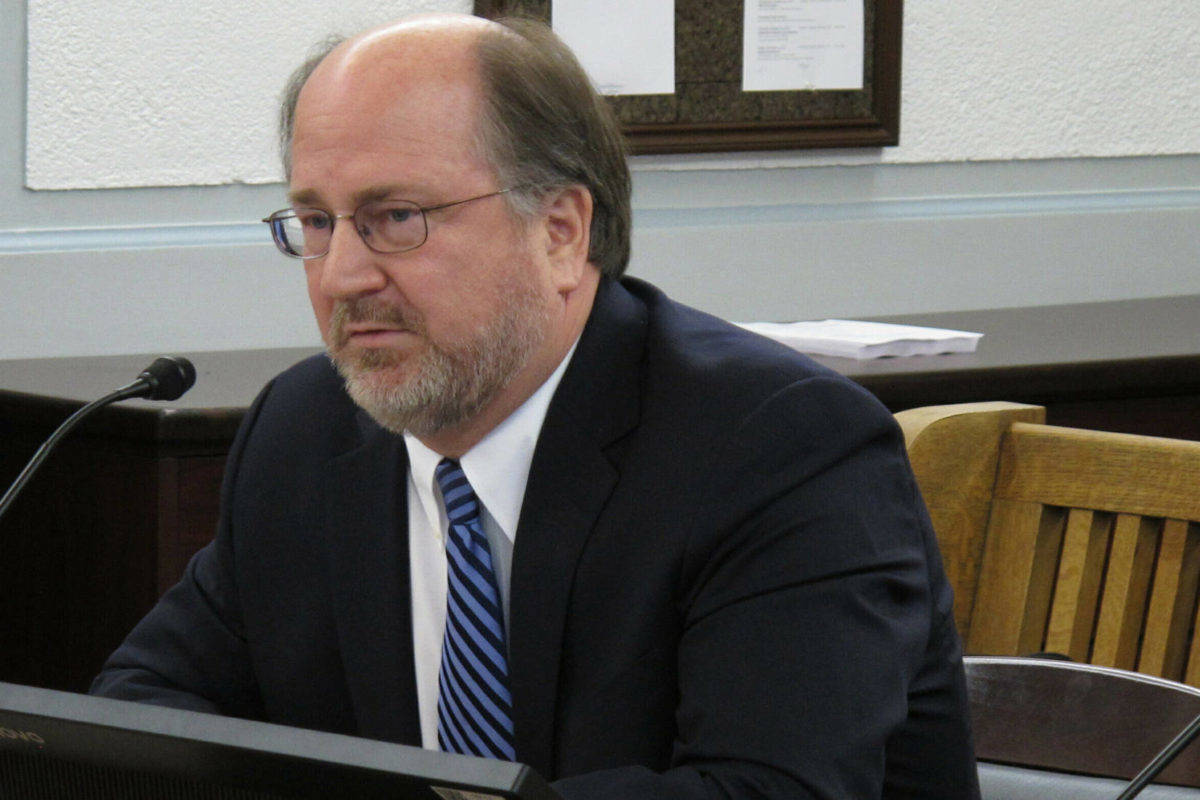It might come as a surprise to some, but in the midst of Alaska’s beautiful outdoor surroundings, we have a human trafficking problem. Human trafficking takes two forms — labor trafficking and sex trafficking. As Alaska’s attorney general, one of my priorities is to combat this scourge and eliminate it from our communities.
Labor trafficking involves using force, fraud, or coercion to induce another individual to work or provide service. Victims can be found in both legitimate and illegitimate labor industries, including sweatshops, massage parlors, agriculture, restaurants, hotels, and domestic service. Sex trafficking involves inducing or causing an adult to engage in a commercial sex act by force, fraud or coercion; or inducing or causing a minor to engage in a commercial sex act (no force required). Commercial sex acts include prostitution, pornography, or any sexual performance done in exchange for value, such as money, drugs, shelter, food, or clothes.
A recent tour that I took of Anchorage with a group called Priceless Alaska was genuinely eye opening. Priceless is a nonprofit organization dedicated to working with law enforcement to help women escape from trafficking by providing them the assistance and resources they need for their rescue. The amount of trafficking activity taking place in Alaska and Anchorage alone is staggering.
Trafficking is different from smuggling. Trafficking is the illegal exploitation of a person — trafficking crimes do not require any movement across state lines. Victims can be recruited and trafficked in their own villages and hometowns —and sadly, even in their own homes. Traffickers use violence, manipulation, or false promises of well-paying jobs or romantic relationships to lure victims.
Traffickers prey on our most vulnerable citizens. Traffickers disproportionately target at-risk populations including individuals who have experienced or been exposed to other forms of violence — child abuse and maltreatment, interpersonal violence and sexual assault, community and gang violence — and individuals disconnected from stable support networks — runaway and homeless youth, and unaccompanied minors. Reports indicate that a large number of child sex trafficking survivors in the United States were at one time in the foster care system.
Children are particularly vulnerable. In 2018, over half of the criminal human trafficking cases active in the U.S. were cases involving children. Advocates report a growing trend of traffickers using online social media platforms to recruit and advertise targets of human trafficking. Often, traffickers use social media, the internet, and gaming platforms to make initial contact with victims.
And these statistics reveal only the tip of the iceberg. Human trafficking is notoriously underreported. The trauma caused by traffickers can be so great that many may not even identify themselves as victims or ask for help, even in highly public settings. Recognizing potential red flags and knowing the indicators of human trafficking is a key step in identifying more victims and helping them find assistance.
Perpetrators recruit victims online, at schools, homeless and abuse shelters, bus stops and many other places. One of the most commonly reported venues for sex trafficking is hotels and motels. We know that traffickers use hotel and motel rooms when setting up so-called “dates” between victims of sex trafficking and those individuals purchasing sex. We also know labor trafficking is present in both the hotel industry’s work force and in the supply chain of its products.
As a state, Alaska is on the precipice. Change is needed. We need to change the attitudes of many in our communities, both rural and urban, regarding domestic violence, sexual abuse and sexual assault. Allowing sex trafficking to flourish in Alaska diminishes our ability as a state to change our culture in this important way.
I commend the many organizations in our communities, like Priceless and Downtown Hope Center, who are making a difference for abused women and trafficking victims. These fine organizations need your help and assistance, both financial and otherwise.
The Department of Law is committed to preventing these heinous crimes, prosecuting traffickers, protecting victims, and educating Alaskans about this important issue. When it comes to trafficking, the message should be clear: Alaska is not open for business.
To report suspected human trafficking, call the Alaska State Troopers at 907-375-6409 or the National Human Trafficking Hotline at 1-888-373-7888 or text “help” to BeFree (233733). You can reach the hotline 24 hours a day, 7 days a week in more than 200 languages. All calls are confidential and answered live by highly trained anti-trafficking hotline advocates.
For general information about human trafficking in Alaska, contact the Department of Law at 907-269-5100.
• Attorney General Kevin Clarkson

